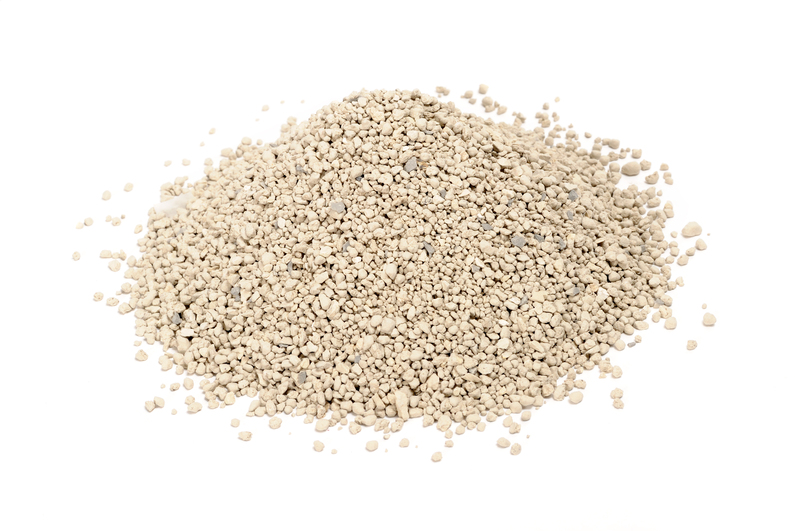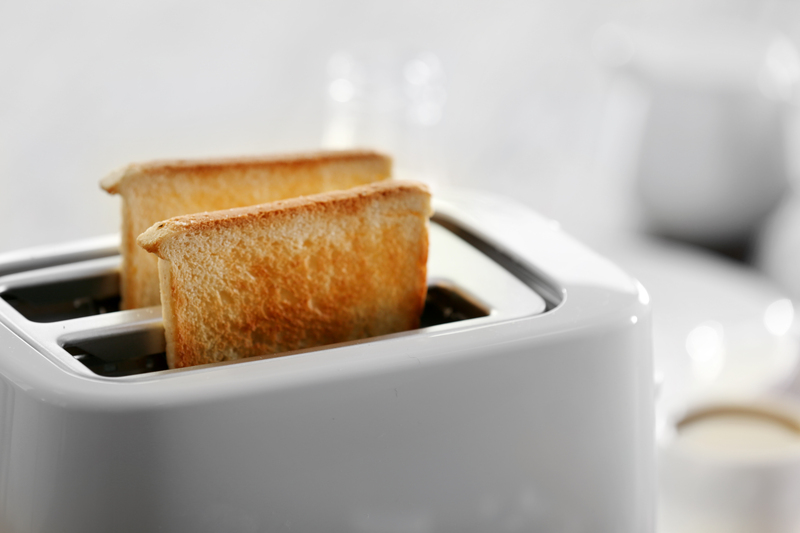Master the Art of Velvet Curtain Care With Effective Washing and Maintenance Strategies
Posted on 01/06/2025
Master the Art of Velvet Curtain Care With Effective Washing and Maintenance Strategies
Velvet curtains exude elegance, luxury, and sophistication. Their plush texture and rich appearance transform living spaces in a way few other draperies can. However, many homeowners ask: how do you keep velvet curtains looking immaculate for years? The secret lies in proper washing, cleaning, and maintenance techniques. In this comprehensive guide, you will learn the best practices for velvet curtain care, ensuring your window treatments remain stunning and fresh.
Why Velvet Curtains Require Special Attention
Unlike cotton or polyester, velvet fabric is delicate. Its signature pile creates a soft, lustrous surface that is easily damaged by improper cleaning. If mishandled, velvet can crush, lose its sheen, or develop unsightly stains. By mastering the art of velvet curtain washing and preservation, you'll protect your investment and maintain the allure of your decor.
- Velvet material is susceptible to watermarks and crushing.
- Improper cleaning techniques can cause fading or pile distortion.
- Dust and dirt can accumulate within the fibers, dulling their appearance over time.

Understanding Different Types of Velvet
Not all velvet is created equal. Recognizing the kind of velvet used in your curtains is crucial, as care instructions may differ. The most common types include:
- Cotton velvet - Luxurious, breathable, and natural, but sensitive to moisture.
- Synthetic velvet - Made from polyester or viscose, generally more durable and resistant to water damage.
- Crushed velvet - Intentionally textured, less prone to pile marks but still delicate.
- Silk velvet - The softest and most luxurious, but also highly sensitive and best left to professionals.
Why Fabric Identification Matters
Check the manufacturer's label for recommended care or consult a curtain specialist if you're unsure which type you have. Different velvet types may respond differently to washing, steam, or dry cleaning solutions.
Curtain Care Basics: Routine Velvet Curtain Maintenance
The cornerstone of velvet drapery care is regular maintenance. By implementing simple habits, you can prevent dust build-up and prolong your curtain's lustrous appeal.
1. Regular Dusting
- Use a soft-bristled vacuum cleaner attachment weekly to gently remove surface dust.
- Work from top to bottom in the direction of the nap (the direction in which the velvet fibers naturally lie).
- A handheld lint roller or a soft clothes brush can target smaller areas without damaging the pile.
Pro Tip:
Always avoid vigorous scrubbing or overzealous vacuuming. Gentleness preserves velvet's plush texture and prevents fiber damage.
2. Spot Cleaning Velvet Curtains
If you notice a stain or spill, immediate spot treatment is essential. Here's how:
- Blot (never rub) excess liquid using a clean microfiber cloth.
- Mix a few drops of mild dish soap into cold water. Dampen a cloth with the solution and gently dab the stain.
- Blot again with a dry cloth to remove excess moisture.
- Let the spot air dry completely. Avoid heat or direct sunlight as this can cause color fading.
Avoid harsh detergents, bleach, or vigorous scrubbing. These can irreversibly crush the soft nap of your luxurious velvet curtains.
Dealing With Persistent Stains
If the stain persists or is oil-based, consult your curtain's care instructions. Dry cleaning is often the safest choice for severe spots.
Effective Washing Strategies for Velvet Curtains
Washing velvet curtains is a task that should be approached with care. You have several options, each with specific instructions for best results.
1. Professional Dry Cleaning
- Most velvet draperies are labeled as dry clean only, especially those made from silk or blended fabrics.
- Dry cleaning preserves the fabric's texture, color, and drape.
- Always inform your cleaner about any spots or stains in advance.
Pro Tip: Try to schedule a professional cleaning at least once a year for optimal freshness and upkeep.
2. Hand-Washing Velvet Curtains at Home
For synthetic or washable velvet, careful hand-washing is possible. Follow these steps:
- Fill a clean tub with cold or lukewarm water--not hot, as heat may damage the fabric.
- Add a small amount of gentle, non-bleaching detergent specifically for delicate fabrics.
- Gently agitate the curtain in the water. Do not wring, twist, or rub the fabric.
- Rinse thoroughly with cold water to remove all soap traces.
- Gently press (do not wring) to remove excess moisture, then lay the curtain flat on a towel to dry.
Do not hang velvet wet, as gravitational pull can stretch or misshape the curtains. Flat drying is crucial!
3. Can You Machine Wash Velvet Curtains?
Some modern velvet blends are labeled as machine-washable. If so:
- Use a delicate cycle with cold water only.
- Place the curtains in a mesh laundry bag to prevent snagging.
- Use a minimal amount of mild liquid detergent.
- Never overcrowd the washer; wash each panel separately if necessary.
- Remove immediately after washing and dry flat.
Always refer to the care label for confirmation before machine washing your velvet drapes.
Preventing Velvet Curtain Damage
Good washing is only one part of complete velvet curtain maintenance. Observing a few additional practices will ensure your curtains enjoy a long, beautiful lifespan.
1. Avoid Direct Sunlight
- Prolonged sun exposure can fade velvet fabric. Install sheer drapes or blinds behind your velvet curtains to limit direct UV rays.
2. Prevent Humidity-Related Issues
- In humid climates, keep the room well ventilated. Excess moisture can encourage mildew and damage the velvet pile.
3. Gentle Handling
- When drawing open or closing your velvet curtains, use curtain rods with smooth gliders and avoid pulling too forcefully.
- If possible, wear gloves when repositioning or reinstalling panels to prevent oil transfer from your hands.
4. Regular Rearrangement
- Periodically swap the sides or panels to ensure even exposure to light and air. This prevents uneven wear and tear and keeps the drapes looking plush everywhere.
Professional Steam Cleaning for Velvet Drapery
Steam cleaning can refresh heavy velvet curtains between washes. Here's how to do it safely:
- Use a handheld steamer set to low or medium heat. Keep the nozzle at least 6-12 inches away from the fabric.
- Gently steam in the direction of the nap and allow the curtain to air dry after steam cleaning.
- Never let the steamer touch the velvet, as direct contact can cause water spots or crush the pile.
Steam cleaning not only removes wrinkles but can also kill bacteria and dust mites, helping you maintain pristine velvet drapes.
Storing Velvet Curtains: Best Practices
If you plan to change your drapery seasonally or store velvet curtains, follow these vital steps:
- Ensure the curtains are perfectly clean and dry before storage.
- Roll (never fold) velvet curtains and wrap them loosely in acid-free tissue paper to prevent creasing and pile crushing.
- Place the rolled curtains in a breathable cotton or linen storage bag--not plastic, as it traps moisture and can promote mold.
- Store in a cool, dark place away from sunlight and humidity.
Pro Tip: Hang or unroll your curtains for a few hours before rehanging them to allow any creases to drop out naturally.

FAQs on Velvet Curtain Washing and Care
Can I iron velvet curtains?
No, avoid direct ironing. The heat and pressure will flatten and damage the velvet's textured pile. If wrinkles persist, use a garment steamer or hang the curtains in a steamy bathroom to relax creases.
How often should I wash velvet curtains?
Deep cleaning once every 6-12 months is usually sufficient if you dust and spot clean regularly. Over-washing can wear out the fabric prematurely.
Are all velvet curtains suitable for home washing?
No. Only certain synthetic velvets may be safely washed at home. Cotton, silk, and high-end velvets should be professionally dry cleaned.
How do I restore crushed velvet?
Gently steam the affected area and use your fingers to lift the pile back into place. Avoid aggressive brushing or rubbing.
Conclusion: Elevate Your Home With Impeccable Velvet Drapes
By mastering velvet curtain care, you not only preserve their unsurpassed beauty but also protect your investment. Regular dusting, spot cleaning, gentle washing, and proper storage are the keys to ensuring your velvet curtains always impress.
- Identify your velvet type and always consult care labels.
- Professional dry cleaning remains the safest option for most velvet drapes.
- Use mild products, cool water, and delicate drying methods for home washing.
- Protect against sun and humidity, and store velvet curtains rolled, not folded.
With the right velvet curtain maintenance strategies, you can enhance your home's atmosphere for years to come. Care for your velvet curtains properly, and let their elegance shine through every season!














